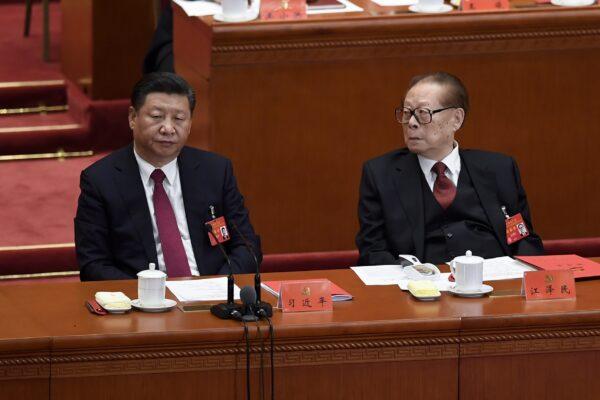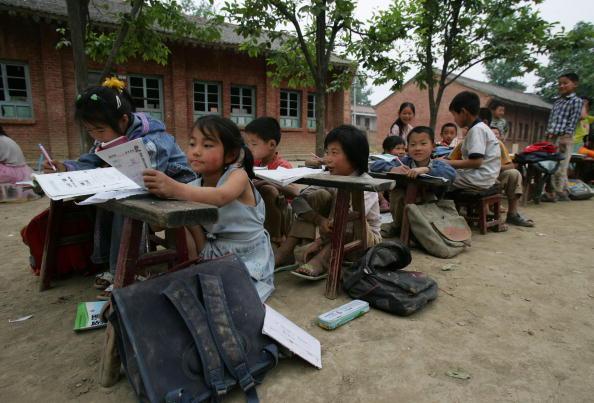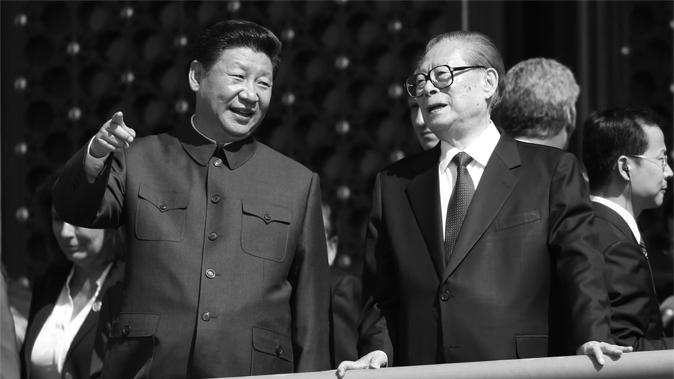On July 24, the General Office of the Central Committee of the CCP and the General Office of the State Council jointly issued the “Opinions on Improving and Reducing the Burden of Students’ Homework and Off-campus Training in Compulsory Education (Opinions),” which was effective immediately.
The Opinions explicitly put forward the “double reduction” policy, that is, reducing the students’ burdens of homework and off-campus training. The Opinions stated that no public financing of subject-based training institutions is allowed, no new subject-based training institution is approved, and existing subject-based training institutions at the compulsory education stage should register as non-profit.
After the double reduction struck down China’s education and training industry, the biggest concern for millions of Chinese parents and teachers was where to sent students for after school programs.
After school programs, or subject-based training institutions, are what Chinese parents typically rely on to prepare students for entrance exams for high schools and higher education.
A Chinese analyst explained to The Epoch Times that the policy was not new, but when the regime publicized its regulations on the industry again, it showed the determination of current leader Xi Jinping’s political struggle with Jiang Zemin, former leader of the Chinese Communist Party (CCP).
The Opinions came as a shock as indicated by the market value of the three listed education and training giants, TAL, Gotu, and EDU immediately falling by 50 percent; the well established JUREN announcing bankruptcy; and the popular English learning program for adults, Wall Street English, being on the verge of bankruptcy.
More small and medium-sized education and training institutions are suffering from the unpredictable. According to Chinese media reports on Sept. 2, more than 160,000 education and training companies have had their licences cancelled or revoked as of Sept. 1, an increase of nearly 30 percent year-on-year.

A Dead End for the After School Programs
To many Chinese parents, their concern only comes to one thing: Can the students go to the after school programs?Richard Zhang (anonymous) is a manager of a municipal education bureau in China. He said, “It’s very unlikely. The authority is serious this time.”
Zhang said the policy did not immediately stop subject-based training; however, “It mainly cuts off the connection between the subject-based training industry and the capital.”
He said, “From a long-term perspective, if the double reduction policy is really implemented, the current training institutions won’t survive the rigid regulation on non-profit, and the strict restriction on time and content for supplementary lessons.”
According to the double reduction policy, all subject-based training institutions must be registered as non-profit; offline classes can only be done after the normal working day, no later than 8:30 p.m., online classes should end by 9:00 p.m., and no classes are allowed on national statutory holidays, weekends, or during winter and summer breaks. The training content also strictly prohibits advanced training.
The Chinese online posts tend to believe the policy will force parents to seek private tutors, which would increase the financial burden for parents.
Zhang agreed that private tutors could be the alternative, however, he also argues, “Tutoring may become only suitable for a very small number of people. The vast majority of families should not have this financial burden, because they simply cannot afford it.”
He explained that the tutoring market mostly hires school teachers or faculty from subject-based training institutions. The strict regulations will cut down the number of teachers available and time allowed for supplementary lessons. “It’s likely the tutoring fees may rise to a level that ordinary families cannot afford,” he added.
Demand Exists, Supply Is Cut Off
Zhang indicated that the double reduction policy is not new. The implementation actually relies on the local Party committee and local government. The Education Bureau has very little control.He said that the latest notice issued by the Education Bureau for the autumn semester had its priority on epidemic prevention, deepening the study of Party history, and the introduction of ideological thinking into the classroom. “There was not much action or publicity on the double reduction,” Zhang added.
On June 15, the Ministry of Education established an off-campus education and training supervision department responsible for promoting the implementation of the double reduction policy. But Zhang doubts the effect of this supervisory department.
According to an article in the “Journal of the Chinese Society of Education” in 2020, the author posits that theoretically, the educational administrative department possesses the executive power, but does not have the actual capacity for law enforcement. The local government’s management of education and training institutions actually relies on the public security, industry and commerce, market supervision, and health departments to enforce the law.
Zhang said that the Education Bureau would not have the manpower to supervise and implement these policies; more importantly, it does not have the power and confidence to enforce the law.
He said, “The power and interest related to most of the capital and large institutions forbid the Education Bureau from implementing the policy.”
Zhang also said, “It looks like Xi Jinping is serious this time. But, the specific work depends on the local governments.”
In Zhang’s view, the double reduction is more like a supply-side reform by Xi.
Political Infighting Behind Double Reduction
Judging from relevant rules and background of the double reduction, it is not Xi’s new policy, but rather a revisit to his failed policy.According to the Opinions, the Double Reduction policy includes eight sections and a total of 30 instructions; only article 13, “Approval of institutions must be assessed with stringent measure,” is new.
The rest of the directives mostly reiterate various policies and decrees issued by the Ministry of Education since 2016.
In addition, there are four directives, Articles 27-30, that specifically demand the Party’s strong leadership to supervise and implement the policy in various departments.

It is also worth noting that the double reduction policy is not from the education system, but is directly led by Xi Jinping and promulgated by the two central offices of the CCP.
When Xi presided over the 19th meeting of the central committee on May 21, he deliberated and approved the double reduction policy. On July 24, the two central offices issued the Opinions.
The Economic Daily, a Party newspaper under the State Council, revealed the signal behind Xi’s policy in an Aug. 1 report, titled, “Double Reduction Signals De-industrialization of Education.”
Former Party chief Jiang Zemin started the industrialization of education in the 1990s, as a result of his money-based governing.
Xi’s Battle To Industrialize Education
The main characteristic of Jiang’s industrialization of education is that it turned education from a public imperative to profit-maker. Education has become a business with the goal of making money.The fact that Xi mentioned students’ burdens can be traced back to the National Education Conference on Sept. 10, 2018 when he said, “The most prominent problem in education is that primary and secondary school students work too hard and are tired … off-campus training institutions must be supervised by law … to reverse utilitarian tendency in education.”
On Dec. 28, 2018, nine departments, including the ministries of education and public security, issued “The 30 measures to reduce the burden of primary and secondary school students” to local governments. The 30 measures are similar to those in the current double reduction policy.
Initially, Xi’s demand only temporarily affected the off-campus training institutions. The subsequent reshuffle in the market accelerated the growth of the education and training industry. For example, TAL Education Group stock plummeted to its lowest point in October 2018, but excelled and reached its historical high in February 2021. The market value of the company rose by nearly four times in 16 months, reaching nearly $350 billion, according to the Chinese finance report.
The Chinese media claimed the failure of the measures forced the regime to adopt the most stringent policy.
Commentator Tang Ao expressed a different view on this.
He said that Xi declared his war earlier than 2018 and that off-campus training institutions were not his only target.
Tang said: “As early as 2016, Xi had his first try; it wasn’t successful. He raised the level and intensity of his shots in 2018, and rectified the education industry for the second time. The double reduction now is actually the third time that Xi has taken action in his battle for the industrialization of education.”
On Nov. 7, 2016, Xi’s authorities revised “Private Education Promotion Law” (Law) through the Ministry of Education, which specifically defines a non-profit nature for private schools.
Article 19 of the revision stipulates: “No for-profit private schools for compulsory education,” and “The organizers of non-profit private schools shall not obtain school-running profits.”
The revised Law also deletes the distinction between private off-campus training institutions and private schools that were in the old Law. In fact, off-campus training institutions are also included within the jurisdiction of the education sector.
Jiang Zemin passed the old Law in the last year of his term. The law did not clarify the relationship between educational institutions and profitability, and was regarded by Chinese legal circles as a gray area for legal justification.
Tang said, “Forbidding the subject-based training institutions to be listed is to reach one goal only, that is, non-profit.”
Tang further explained that Xi failed his tests in 2016 and 2018, which forced him into a corner.
“The fundamental purpose of double reduction is surely to strengthen the Party’s ideological control over the people and education. But at the same time, Xi may also want to eliminate the remaining influence of Jiang Zemin by denying Jiang’s industrialization of education. This is why Xi continued the actions he started in 2016.” Tang said.
Based on the fact that the CCP has been governed by corrupt officials from its foundation, people wonder if Xi will return a clean and rectified education system to people.
Tang said, “There’s no way to undo the damage caused by the industrialization of education. It has affected not just education or one generation.”
He believes that private schools will be Xi’s next target.
According to a report in state-run media Xinhua, there are 186,700 private schools nationwide, accounting for more than one-third of the total number of schools in the country, and teaching close to one-fifth of all students in 2020.




